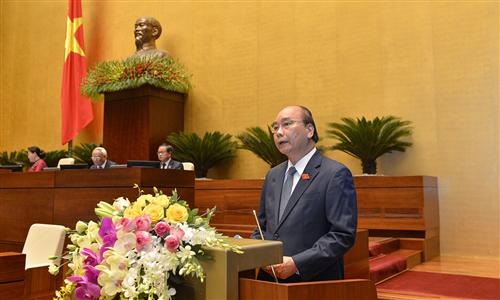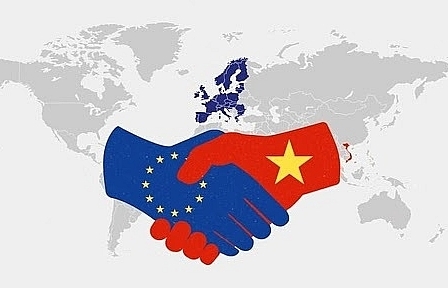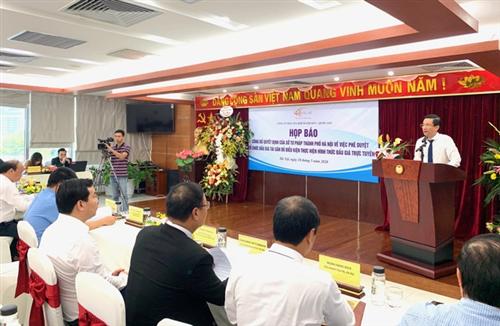International cooperation enhanced to develop marine economy
International cooperation enhanced to develop marine economy
International cooperation would be enhanced to develop a sustainable marine economy, with a focus on improving infrastructure, according to a project Prime Minister Nguyen Xuan Phuc approved early this week. 
The project would concentrate on enhancing international cooperation in six aspects, including sea, ocean and coastal area management; developing marine and coastal economy; improving life and building a sea-friendly culture; developing marine human resources; protecting the marine environment and coping with climate change; and ensuring national defence.
To develop a sustainable marine and coastal economy, a focus would be placed infrastructure.
As for sea tourism, infrastructure, including international passenger ports and cruise ships, would create large coastal tourism centres.
The project would also focus on developing the national seaport system, especially deep-water seaports which had good transport connectivity with industrial zones, as well as improving logistics services, to promote the development of the maritime economy.
A fleet of modern vessels would be built to minimise environmental pollution and save energy.
The infrastructure system and industrial parks would also be built for the oil and gas industry, together with the development of an undersea pipeline network to improve connectivity with other countries in the region, including Indonesia, Malaysia and Thailand.
Investments in oil and gas projects abroad would be promoted.
The project targeted to develop sustainable aquaculture and fishing with a synchronous infrastructure system and logistics services to improve efficiency. Application of high technologies in aquaculture were encouraged.
It encouraged the development of high-tech and environmentally friendly industries in coal areas, focusing on developing eco-economic and industrial zones in association with marine economic centres to promote regional linkage and development and move toward green growth.
Developing renewable energies at sea and new marine industries like marine pharmaceuticals and seaweed farming was also an important part of the project.
The project would focus on developing maritime infrastructure to meet the requirements on environmental protection, disaster prevention and adaptation to climate change and rising sea levels, together with building airports in coastal areas and islands in the East Sea.
Cooperation would be prioritised with countries with modern and advanced marine economy and technologies, the project stressed.
The Government in early March issued a master and a five-year plan on implementing a strategy for sustainable development of Viet Nam’s marine economy to 2030 with a vision to 2045.
The plan was part of efforts to implement Resolution No 36/NQ-TW dated October 22 of the Party’s Central Committee on the strategy for sustainable development of the Vietnamese marine economy which set the goal that Viet Nam would become a strong and rich country based on the sea.
Viet Nam had a coastline of 3,260km long running though 28 out of 63 provinces and cities, ranking 27th out of 157 coastal countries in the world, together with more than 3,000 islands and islets.
























